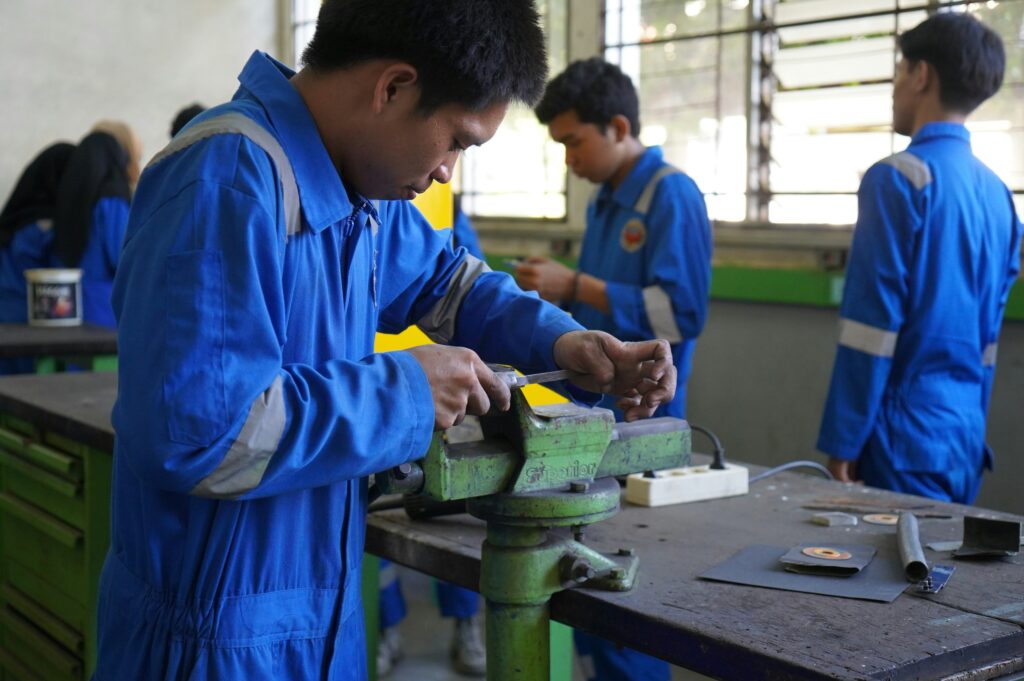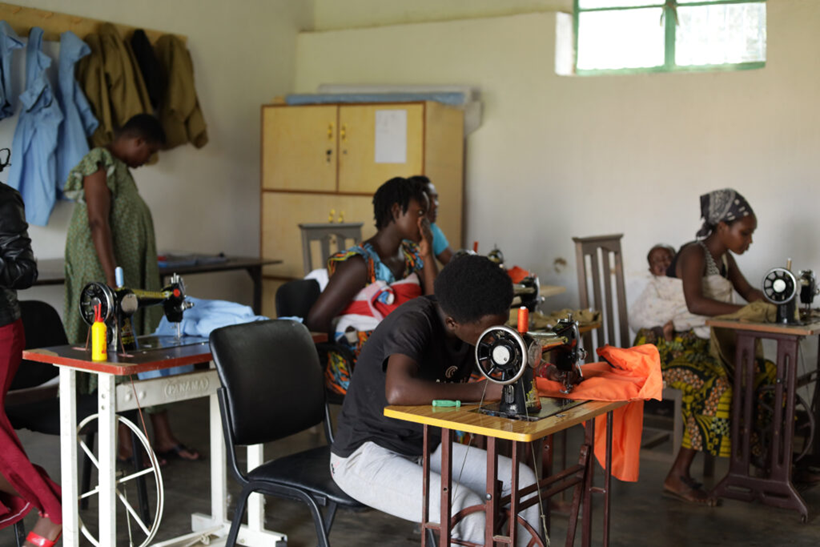Discover how vocational training empowers street youth with essential skills, fostering employment, entrepreneurship, and a brighter future.

Introduction
Street youth face significant challenges, including poverty, lack of education, and limited job opportunities. Without proper support, many struggle to break free from cycles of homelessness and unemployment. However, vocational training for street youth has emerged as a powerful tool for reintegration, providing them with the skills needed to build independent and sustainable lives.
How Vocational Training Transforms Lives
1. Skill Development for Employment
One of the biggest hurdles street youth face is the lack of marketable skills. Skill development programs equip them with practical abilities such as carpentry, plumbing, tailoring, IT, and hospitality. These hands-on skills open doors to stable jobs, reducing their dependency on aid and decreasing crime rates.
📌 Case Study: The Don Bosco Technical Institute (Kenya)
The Don Bosco Technical Institute in Nairobi provides vocational training in welding, electrical work, and mechanics to street youth. A 2022 impact study showed that over 70% of graduates found stable employment within a year of completing their training, significantly reducing their risk of returning to street life (Source).
2. Boosting Confidence and Self-Sufficiency
Beyond technical skills, vocational training fosters confidence. Many street youth have faced rejection and trauma, making it difficult for them to integrate into society. Training programs provide structured learning environments where they can rebuild their self-esteem, interact with mentors, and develop professional work ethics.
📌 Case Study: Street Business School (Uganda)
Street Business School (SBS) empowers homeless youth, particularly young women, by offering business and vocational training. Graduates report a 150% increase in earnings after completing the program, enabling them to afford housing, healthcare, and education for their children (Source).
3. Entrepreneurship Opportunities
Not all youth will find formal employment immediately. Some may choose self-employment by starting small businesses. Vocational training often includes financial literacy, business planning, and entrepreneurship guidance, empowering youth to create their own income streams and become financially independent.
📌 Case Study: Love for Hope Ministry (Rwanda)

Love for Hope Ministry in Rwanda is dedicated to creating a safe and nurturing environment for children and youth by fighting stigma and supporting skill development programs that promote self-reliance. Their Economic Empowerment Program offers training in:
- Beauty Trades – Equipping vulnerable youth, including teenage mothers, with skills in hairdressing, pedicures, and manicures to generate sustainable income.
- Hair Recycling – Training young women to repurpose discarded hair into valuable products like wigs and extensions, promoting both entrepreneurship and environmental sustainability.
- Shoe Making & Tailoring – Teaching craftsmanship skills that enable participants to create footwear and textiles for employment or self-employment.
- Beadwork & Vegetable Gardening – Empowering youth to produce cultural crafts and cultivate their own food for both consumption and income generation.
- Piggery & Poultry Farming – Providing agricultural training to improve food security, generate income, and enhance economic resilience within communities.
Through these diverse skill development programs, Love for Hope Ministry enables young people to break free from the cycle of poverty and gain financial independence, ensuring long-term reintegration into society.
Successful Models of Vocational Training for Street Youth
Several organizations and NGOs have implemented skill development programs with remarkable success. For instance, initiatives that combine classroom learning with apprenticeships give youth real-world experience and increase their chances of long-term employment. Countries with government-backed vocational programs have also seen a reduction in youth unemployment and homelessness.
Example: The Government of India’s PMKVY Program
The Pradhan Mantri Kaushal Vikas Yojana (PMKVY) is a nationwide vocational training initiative that has trained over 10 million young people in diverse skills. A significant portion of the program focuses on marginalized youth, including former street children, ensuring they have access to employable skills (Source).
Conclusion
Investing in vocational training for street youth is not just about job skills—it’s about restoring dignity, creating opportunities, and breaking the cycle of poverty. By equipping marginalized youth with valuable skills, societies can foster inclusion, reduce crime, and pave the way for a brighter future.
Looking for more insights on youth empowerment and skill development? Check out these related posts:
“What are your thoughts on vocational training for street youth? Have you seen similar programs making a difference? Share your insights in the comments below! Let’s start a conversation on how skills can transform lives. Don’t forget to share this post with others who care about youth empowerment!”
References
- Love for Hope Ministry. (2024). Skill Development Programs. Retrieved from https://loveforhopeministry.org/2024/05/31/skill-development/.
- Don Bosco Youth. (2022). Vocational Training Impact Report. Retrieved from https://www.donboscoyouth.org.
- Street Business School. (2023). Empowering Women and Youth Through Business Training. Retrieved from https://www.streetbusinessschool.org.
- Youth Empowerment Project Gambia. (2023). Entrepreneurship Support for Youth. Retrieved from https://www.yep.gm.
- Government of India. (2023). Pradhan Mantri Kaushal Vikas Yojana (PMKVY). Retrieved from https://www.pmkvyofficial.org.
